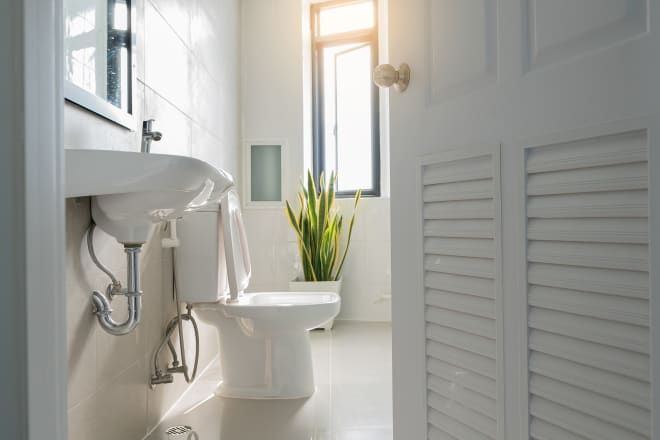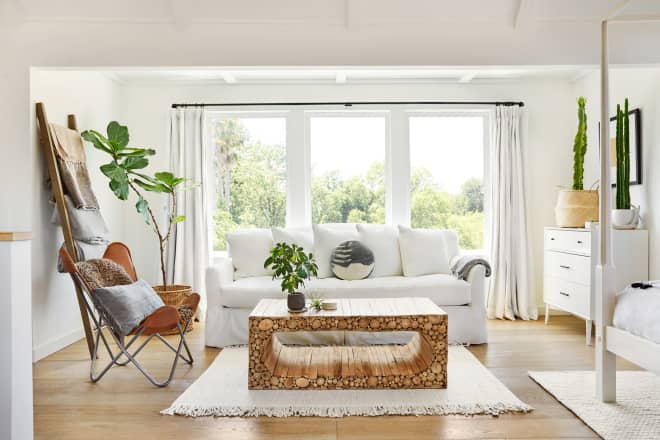Dodow review: A simple sleep gadget thats best for back sleepers
The circular Dodow sits on your nightstand and helps guide your breathing with blue light as you try to drift to sleep. Here's our review.


The Dodow is an unassuming object: About three inches in diameter, it sort of resembles a coaster. But it's a sleep device that's pretty well beloved, albeit pricey, and very simple to use.
Armed with a blue light and three AAA batteries, the Dodow sits on your nightstand and helps guide your breathing as you try to drift to sleep. The device has two "breathing modes," one eight-minute exercise and one 20-minute exercise. If you change your mind midway through the eight-minute mode, you can also switch to the 20-minute mode without restarting the whole sequence, which I thought was a nice touch.
Once you select your mode, you'll notice that a circle of blue light will be projected onto the ceiling above your bed. The beam of light will expand and contract rhythmically: Your job is to lie on your back, inhale when the light expands, and exhale when the light contracts. Before long, Dodow promises, "sleep will come."
What works
Adding light of any kind to a sleep routine feels like a dangerous game: There's plenty of research confirming light's adverse effects on sleep. But the Dodow's blue light at least felt soft and unobtrusive, bright enough to show up on the ceiling but not so bright that it prevented me from falling asleep.
The breathing exercises were pleasant and calming, although I'm not sure they ever caused me to slumber. Still, I often don't have much decompression time before hitting the hay, so it was nice to concentrate on something other than my own mile-a-minute thoughts. Meditative indeed!
I could see the Dodow working especially well for travel: it's lightweight and easy to pack, and it would be handy for nights when it's hard to fall asleep in a new place. (Plus, you can buy a cute round carrying case for it.) Further evidence: the company has a partnership with Air France, which provides the devices to its flight staff.
What doesn't quite work
Again, it's hard for me to say whether the Dodow actually caused me to fall asleep. While I enjoy using the device, its effects still feel a bit mysterious.
In addition, the Dodow is probably not a great choice if you hate sleeping on your back. Fortunately, I don't mind sleeping on my back — it tends to soothe my sciatica — so this wasn't an issue for me. If you're a side or stomach sleeper, though, you'll have no way of watching the blue light. (I suppose there might be some kind of creative workaround for side sleepers, but that seems like a lot of work to figure out.)
I also struggled with the Dodow's battery cover falling off frequently, though this may have been an issue confined to my unit.
Is the Dodow worth it?
Let's be honest: $60 is pretty expensive for a device with pretty one-note functionality. If it's just meditation or breathing exercises you're after, you'd do just as well with a meditation app. And if you want a white noise or other sound component, Dodow isn't the fix for you.
Dodow's big advantage, in my view, is that it's completely untethered to other devices. It doesn't connect to your phone or smart home hub, so you can leave all your other tech in another room (as is recommended) for bedtime.
What softens the cost is the company's 100-day free trial, which lets you try the Dodow for 100 nights before determining whether it's right for you. If it's not your thing, you can return it for a full refund.




















_Alexey_Kotelnikov_Alamy.jpg?width=1280&auto=webp&quality=80&disable=upscale#)




















































